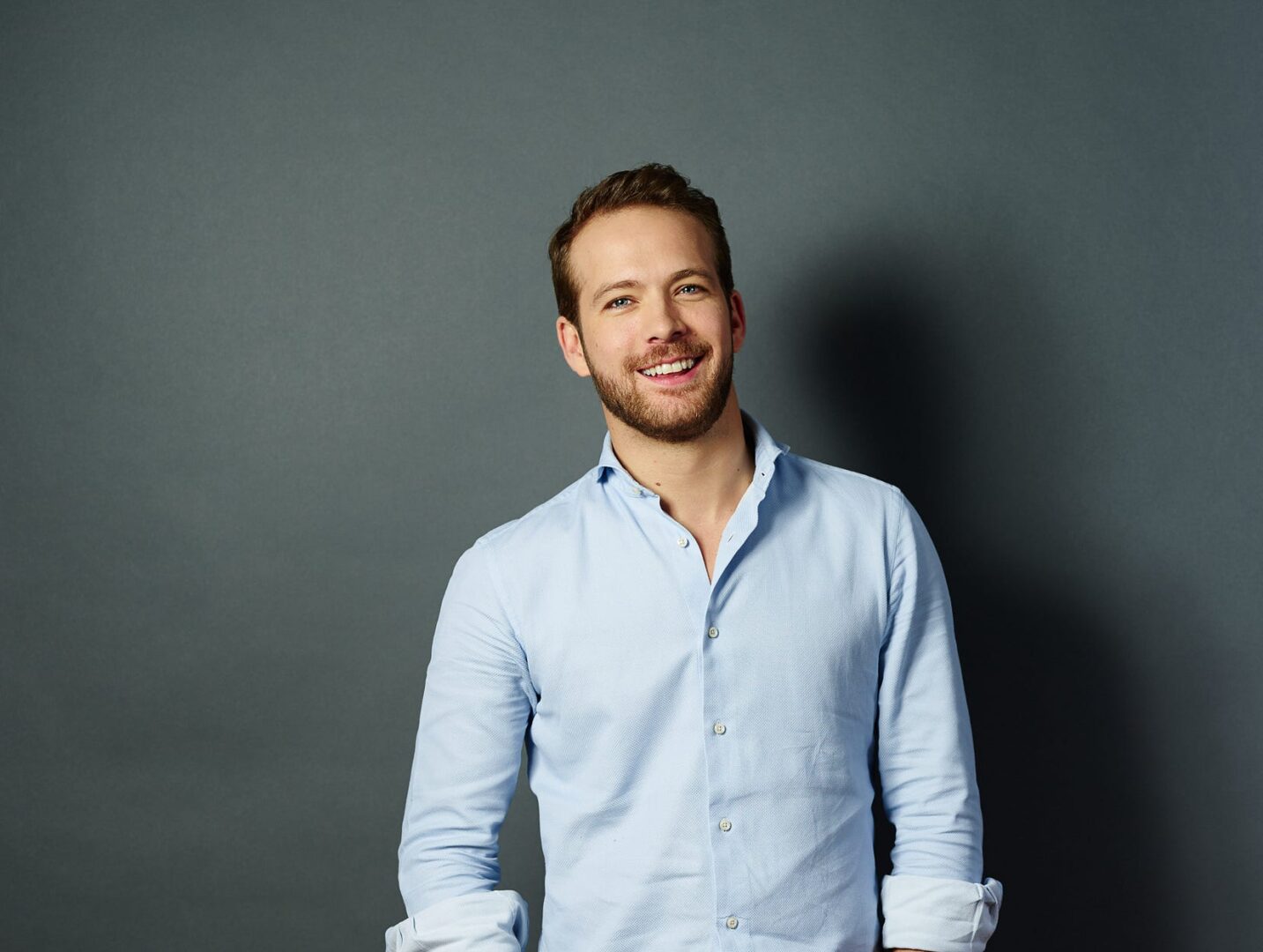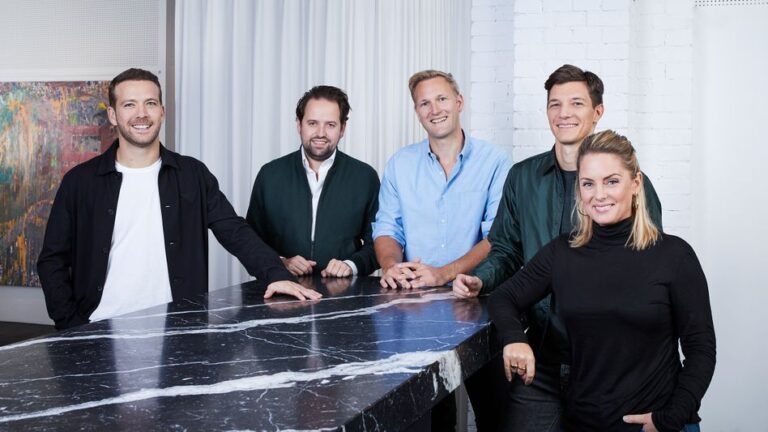
The ability to connect seemingly disconnected dots to improve or solve problems for customers is at the very heart of strategy in any business. But, perhaps, this strategic ability is most in demand in venture capital, where investors place big bets on founders, products, and even ideas that they believe can build the megatrends of the future.
Filip Dames, co-founder of early-stage Venture Capital fund Cherry Ventures, recently came to IMD to Professor Omar Toulan’s MBA Strategy course to discuss how to identify the founders that have both the stamina and skills to scale an idea into a billion-dollar company.
Dames, who was a member of the founding team of online fashion retailer Zalando and was ranked as one of the Top 25 Tech Investors by Forbes in 2022, backs founders at the beginning of their journey, the pre-seed or early stage, with a typical investment ranging between €300,000 and €3m.

Among the investments that have borne fruit since Cherry Ventures was founded in 2013 are used car trading platform AUTO1 Group, which was valued at almost €8bn when it listed on the Frankfurt stock exchange in 2021, and Flix Bus, a global intercity bus operator.
“The reality is that not every company will have the same trajectory or growth journey. Many may even fail. Yet, a couple will develop into global game changers, like AUTO1 and FlixBus,” said Dames, who invests across industries and sectors with a focus on firms that challenge consumer behaviors and drive impact and sustainability. Among them are Planet A Foods, which is developing cocoa-free chocolate by fermenting plant-based ingredients and vertical farming company Infarm.
So, what makes a good Venture Capital investor, especially in a volatile macroeconomic environment? Dames had the following advice for the MBA class of 2023.
Invest in the team — not the idea
When scouting for investments, Cherry Ventures pays more attention to the founding team rather than the product. “We always want to back stellar teams with complementary backgrounds and strong previous experience in operating, building, and technical development embarking on new ideas. With a great team, anything is possible and it’s fulfilling to work side-by-side such founders,” explained Dames.
He cited the example of Quandoo, which started out as an online cashier service for restaurants before the founding team realized the problem they were solving wasn’t a big enough pain point for their customers. Quandoo, which included individuals that had previously worked on group discount platform Groupon, decided to pivot to create a real-time online reservation system for restaurants in Europe that uses data to run deals when bookings are low to fill tables. In 2015, the company was sold to Japan’s Recruit.
“It’s about staying calm and being an inspiring partner for the founders and not trying to run the business for them”
-Filip Dames
Cherry Ventures will often court successful founders who are still in their previous businesses, said Dames, underscoring how the fund likes to invest in people over products. “At Cherry, we’re proud to be ‘founders first.’ But what makes us different from our competition is that we’re also a founder’s first call when he or she wants to start a company. Many operators from top startups, scaleups, and unicorns across Europe who are keen on building give us a ring first,” he said.
Be creative about potential outcomes
As an early-stage investor, you need to have quite a bit of imagination about what a company or market could become in seven to 10 years’ time. As such, the best VC investors will be creative in their thinking, imagining several different outcomes for their investments.
“It’s almost always wrong to look at existing market size. A super strong idea will end up as nothing because it’s too early or too late,” said Dames, noting that timing is critical. For example, when Cherry Ventures invested in Flix Bus, which was valued at $3bn at its last funding round in 2021, German rail company Deutsche Bahn had just lost its monopoly, opening up huge opportunities for new competitors.
Be fair to your founders
As a founder-turned-investor, Dames knows just how difficult starting a company can be.
“Founding a company is the hardest job out there. It’s a rollercoaster. With Zalando, even three or four years in, there were so many moments where we thought we would have to close the company because of some failures,” he told the MBAs.

As a result, Cherry Ventures is the most entrepreneur-focused venture firm in Europe, and offers founders a suite of support services including experts that will help them set up HR processes, answer communications questions, and figure out when they should raise fresh funds.
“It’s about staying calm and being an inspiring partner for the founders and not trying to run the business for them,” explained Dames. “Of course, we must have some form of governance; we have a fiduciary duty to our own investors. So, in practice, we are not always the nice guys. But I think you can do it in a fair way.”
ESG should be there from the start
While ESG may not be top of founders’ minds, Dames believes it is essential to weave sustainable and inclusive business practices into the fabric of a startup from the get-go, especially if a firm is looking to scale down the line.
“You will not be able to hire diversity with 20 guys in the room. So, I think you need to fix it from day one. We pay a lot of attention to that,” said Dames, adding that ESG criteria exists for the terms and conditions of any proposed investment.
An ability to ride the storm
Any successful VC investor must also be willing to weather market volatility. After a long period of record-low interest rates which saw companies chasing scale at the expense of profitability, rising inflation and stock market turmoil has spooked investors and put more pressure on startups to prioritize profit over growth.
“In 2021, I spent probably 60-70% of time looking at new topics. Now I spend 60-70% of my time making sure our portfolio thrives in this current climate,” said Dames.
In this uncertain and volatile environment, Cherry Ventures has shifted to internal portfolio management and is helping startups cut costs and build more efficient organizations to burn through less cash.
There are, however, some upsides to the market slowdown, with Dames noting he has more time to make decisions. “In 2021, I had to make up my mind in six to seven hours” he said.
At the same time, he added, the recent layoffs in the fintech industry mean there is a lot of potential talent to tap. “There’s a really good opportunity to build a strong portfolio in down markets and double down on the best founders.”

